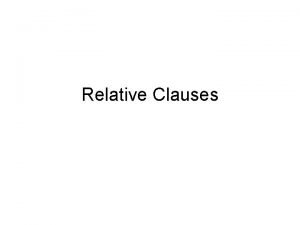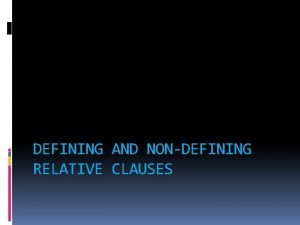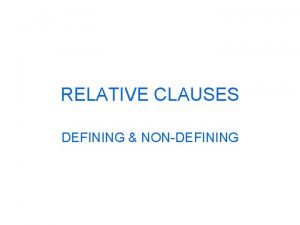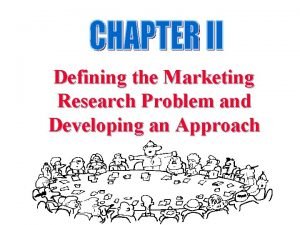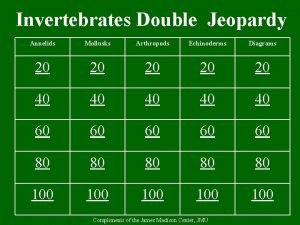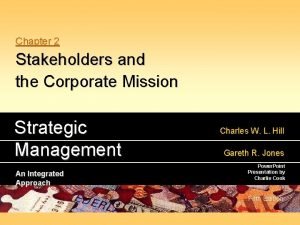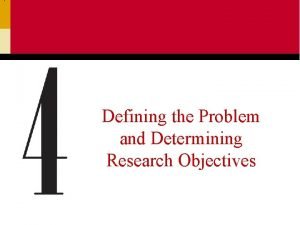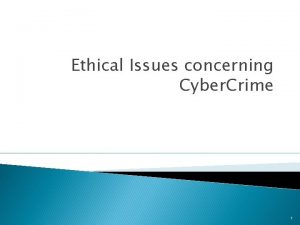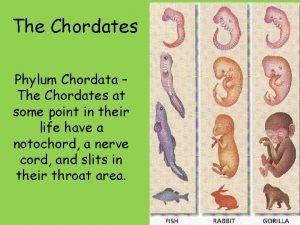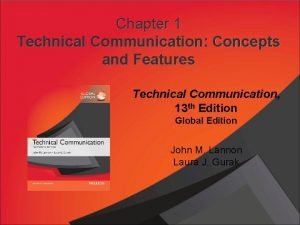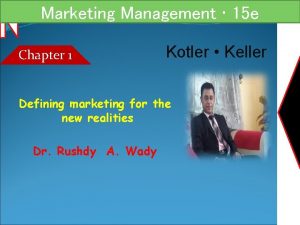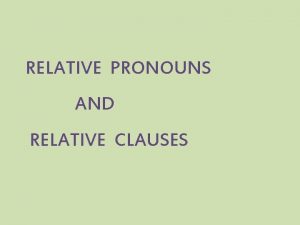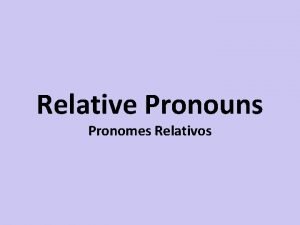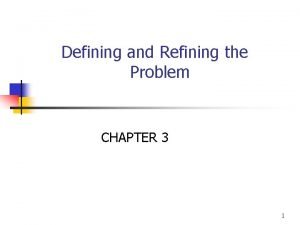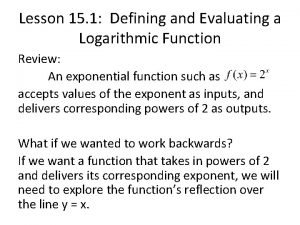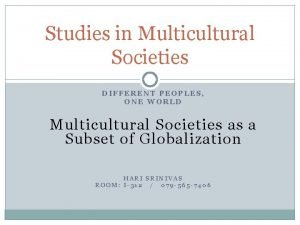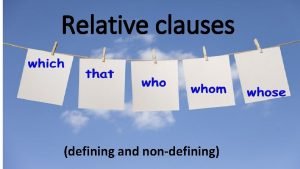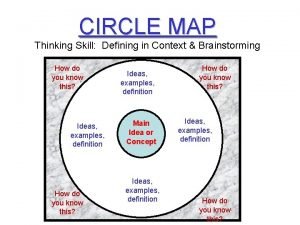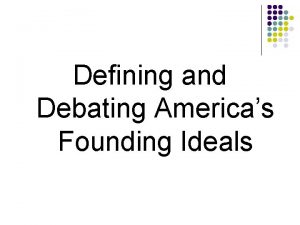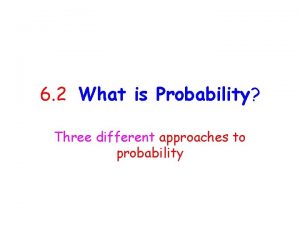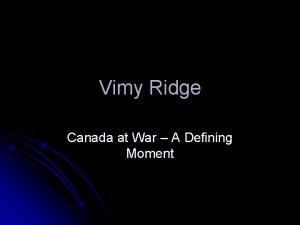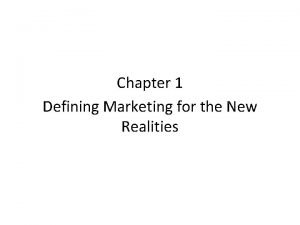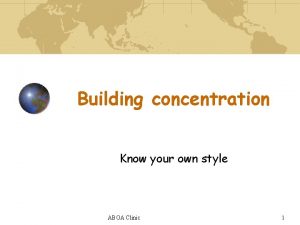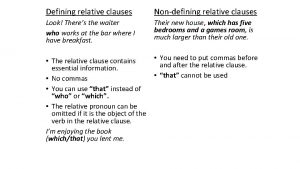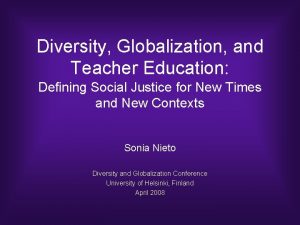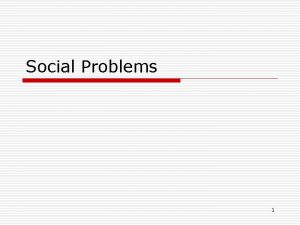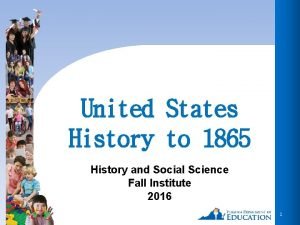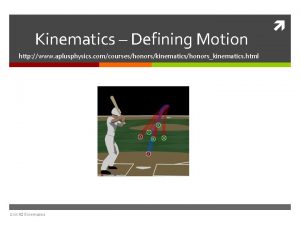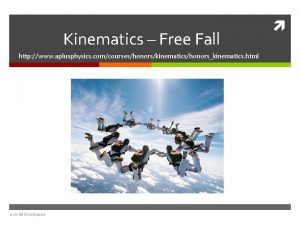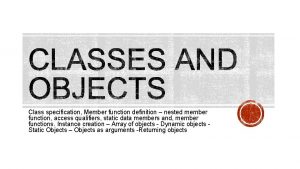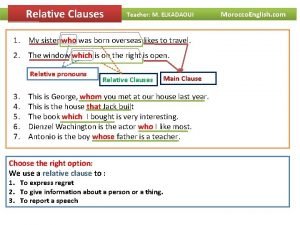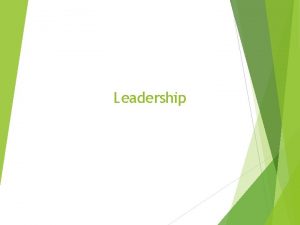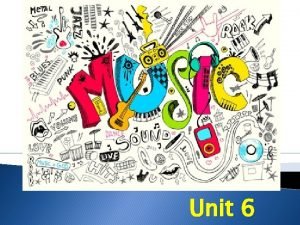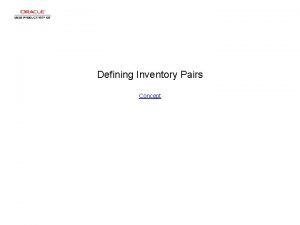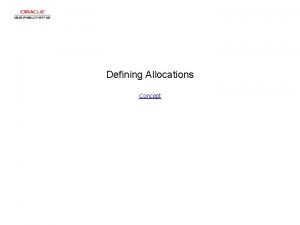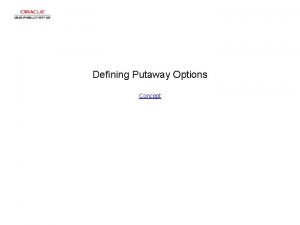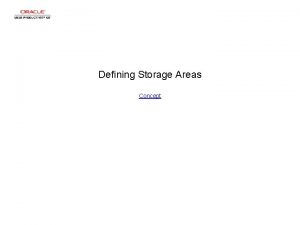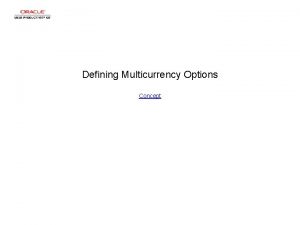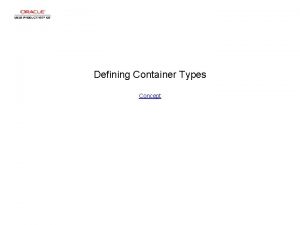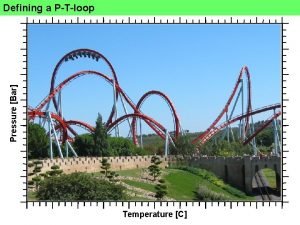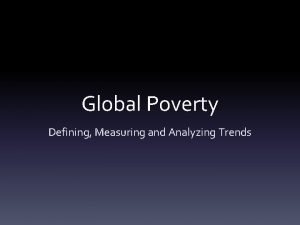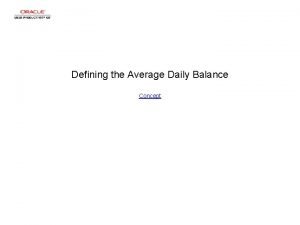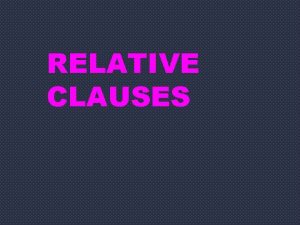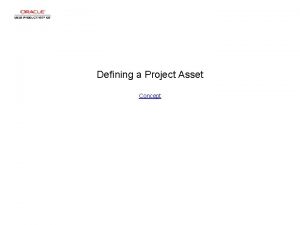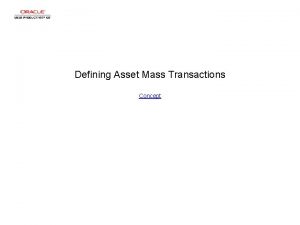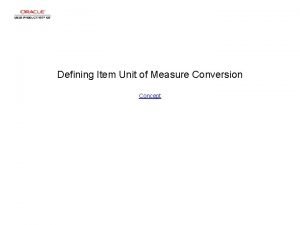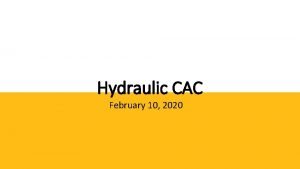What is politics Defining politics Politics is a





































- Slides: 37

What is politics?

Defining politics � Politics is a social activity. � It is always a dialogue. � Disagreement lies at the heart of politics. � Aristotle: Politics, a master science, nothing less than the activity through which human beings attempt to improve their lives and create the GOOD SOCIETY.

Defining politics � Politics, in its broadest sense, is the activity through which people make, preserve and amend the general rules under which they live. � Politics is inextricably linked to the phenomena of conflict and cooperation.

Defining politics Why conflict? � Because the existence of rival opininons, different wants, competing needs and opposing interests guarantees disagreement about the rules under which people live.

Defining politics Why cooperation or concert? � Because people recognise that, in order to influence these rules or ensure that they are upheld, they must work with others, hence Hannah Arendt’s definition of political power as ‘acting in concert’.

Defining politics � Politics, then, is a search for CONFLICT RESOLUTION. � The inescapable presence of diversity (we are not all alike) and scarcity (there is never enough to go around) ensure that politics is an inevitable feature of the human condition.

Two major problems of clarifying the meaning of politics Politics is a ‘loaded’ term: It is used with a mass of associations in everday language. People come to study politics have preconceptions. Some finds it hard to believe that politics can be approached in an impartial and dispassionate manner. � Sometimes, and the worst of all, politics is usually thought of as a ‘dirty’ word: İt conjures up images of trouble, disruption and even violence on the one hand, and deceit, manipulation and lies on the other. �

Two major problems of clarifying the meaning of politics � Secondly, even respected authorities cannot agree what the subject about. Politics is defined in such different ways: › › › As the exercise of power As the exercise of authority The making of collective decisions The allocation of scarce sources The practice of deception and manipulation

Two major problems of clarifying the meaning of politics Politics is ‘essentially contested’ concept. There has been a number of acceptable or legitimate meanings. However, different views may simply consist of contrasting conception of the same concept. � Different views of politics: � › › Politics as the art of government Politics as public affairs Politics as compromise and consensus Politics as power and distribution of resources

Politics as the art of government � When Chancellor Bismarck defined politics as an art, he had in mind the art of government, the exercise of control within society through the making and enforcement of collective decisions. � The definition is the classical one, derived from the term’s original meaning developed in Ancient Greece.

Politics as the art of government � The word politics is derived from polis, meaning city-state. › Ancient Greek society was divided into a collection of independent city-states. Each of those city-states possessed its own system of government. For instance, Athens had democratic government. › In this light, politics can be understood to refer to the affairs of the polis, in effect ‘what concerns the polis. ’

Politics as the art of government � The notion that politics amounts to ‘what concerns the state’ is the traditional view of the discipline, reflected in the tendency for academic study to focus upon the personnel and machinery of government. To study politics is in essence to study government, or, more broadly, to study the exercise of authority.

Politics as the art of government David Easton (an US political scientist) agrees on this definition (1979, 1981). He defined politics as the ‘authoritative allocation of values’. � Briefly, he meant that politics encompasses the various processes through which government responds to pressures from the larger society, in particular by allocating benefits, rewards or penalties. ‘Authoritative values’ are therefore ones that are widely accepted in society, and considered binding by the mass of citizens. � In this view, politics is associated with ‘policy’, that is, with formal or authoritative decisions that establish a plan of action for the community. �

Politics as the art of government According to this highly restricted view of politics, politics what takes place within a polity, a system of social organisation centred upon the machinery of government. � Politics is therefore practised in cabnet rooms, legislative chambers, government departments and the like, and it is engaged in by a limited and specific group of people, notably politicians, civil servants and lobbyists. �

Politics as the art of government This means that most people, most institutions and most social activities are regarded as being ‘outside’ politics, that is, businesses, schools, institutions, community groups, families are nonpolitical because they are not engaged in ‘running the country’. � By the same token, to portray politics as an essentially state-bound activity is to ignore the increasingly important international and global influences upon modern life. �

Politics as the art of government � This definition can be narrowed still further. This is evident in the tendency to treat politics as the equivalent of party politics. � In other words, the realm of the political is restricted to those state actors who are consciously motivated by ideological beliefs, and who seek to advance them through membership of a formal organisation such as a political party.

Politics as the art of government � � � Politicians: political Civil servants: nonpolitical This link between politics and the affairs of the state explains why negative and pejorative images have so often been attached to politics. In the popular mind, politics is closely associated with the activities of politicians. Politicians are often seen as power-seeking hypocrites who conceal personal ambition behind the rhetoric of public service and ideological conviction.

Politics as the art of government Media’s influence in intensifying this kind of beliefs, giving rise to the phenomenon of antipolitics. � Niccolo Machiavelli’s strictly realistic account of politics in his The Prince (1531). � The liberal perception: individuals are selfinterested, political power is corrupting, because it encourages those in power to exploit their position for personal advantage and at the expense of others. ” �

Politics as public affairs A broader conception of politics rests on the division between an essentially public sphere of life and what can be thought of as a private sphere. � Aristotle, in Politics, declared that ‘man is by nature a political animal’. It is only within a political community that human beings can live ‘the good life’. From this viewpoint, then, politics is an ethical activity concerned with creating a ‘just society’; it is what Aristotle called the ‘master science’. �

Politics as public affairs Where should the line between ‘public’ life and ‘private’ life be drawn? � The traditional distinction between the public realm and the private realm conforms to the division between the state and civil society. The institutions of the state (the apparatus of government, the courts, the police, the army, the society-security system, and so forth) can be regarded as ‘public’ in the sense that they are responsible for the collective organisation of community life. Moreover, they are funded at the public’s expense, out of taxation. �

Politics as public affairs In contrast, civil society consists of what Edmund Burke called the ‘little platoons’, institutions such as family and kinship groups, private businesses, trade unions, clubs, community groups and so on that are ‘private’ in the sense that they are set up and funded by individual citizens to satisfy their own interests, rather than those of the larger society. � On the basis of this ‘public/private’ division, politics is restricted to the activities of the state itself and the responsibilities which are properly exercised by public bodies. �

Politics as public affairs � Those areas of life that individuals can and do manage for themselves (the economc, social, domestic, personal, cultural and artistic spheres, and so on) are therefore clearly ‘nonpolitical’.

Politics as public affairs � An alternative ‘public/private’ distinction is based on the distinction between ‘the political’ and ‘the personal’. � Although civil society can be distinguished from the state, it nevertheless contains a range of institutions that are thought of as ‘public’ in the wider sense that they are open institutions, operating in public, to which the public has access.

Politics as public affairs One of the crucial implications of this is that it broadens our notion of the political, transferring the economy in particular from the private to the public realm. A form of politics can thus be found in the workplace. � Nevertheless, although this view regards institutions such as businesses, community groups, clubs and trade unions as ‘public’, it remains a restricted view of politics. �

Politics as public affairs � According to this perspective, politics does not, and should not, infringe upon ‘personal’ affairs and institutions. Feminist thinkers in particular have pointed out that this implies that politics effectively stopsat the front door; it does not take place in the family, in domestic life, or in personal relationships.

Politics as public affairs POSITIVE IMAGES OF POLITICS AS AN ESSENTIALLY PUBLIC ACTIVITY: � Aristotle: politics is a noble and enlightened activity precisely because of its ‘public’ character. � Hannah Arendt, in her The Human Condition, argued that politics is the most important form of human activity because it involves interaction amongst free and equal citizens. It thus gives meaning to life and affirms the uniqueness of each individual.

Politics as public affairs NEGATIVE IMAGES OF POLITICS AS AN ESSENTIALLY PUBLIC ACTIVITY: o Liberal theorists have a preference for civil society over the state, on the grounds of that ‘private’ life is a realm of choice, personal freedom and individual responsibility. This is most clearly demonstrated by attempts to narrow the realm of the political, commonly expressed as the wish to ‘keep politics out of private activities such as business, sport, and family life. From this point of view, politics is unwholesome quite simply because it prevents people acting as they choose.

Politics as public affairs � Jean-Jacques Rousseau: only through the direct and continuous participation of all citizens in political life can the state be bound to the common good, or the general will. � John Stuart Mill: involvement in ‘public’ affairs is education in that it promotes the personal, moral and intellectual development of the individual.

Politics as public affairs: Two views of the public/private divide Public Private The state: apparatus of government Civil society: Autonomous bodies: businesses, trade unions, clubs, families, and so on.

Politics as public affairs: Two views of the public/private divide Public Private Public realm: politics, commerce, work, art, culture, and so on Personal realm: Family and domestic life

Politics as compromise and consensus � In the third conception, politics is seen as a particular means of resolving conflicts, that is, by compromise, conciliation and negotiation, rather than through force and naked power. This is what is implied when politics is portrayed as ‘the art of the possible’. Once again, this view of politics has been traced back to the writings of Aristotle. According to his view, ‘polity’ is the ideal system of government, as it is mixed in the sense that it combines both aristocratic and democratic features.

Politics as compromise and consensus � Bernard Crick, in his In Defence of Politics, defines politics as follows: › Politics [is] the activity by which differing interests within a given unit of rule are conciliated by giving them a share in power in proportion to their importance to the welfare and the survival of the whole community. (Crick, 1993: 21) › The key here is a wide dispersal of power.

Politics as compromise and consensus Such a view of politics reflects a deep commitment to liberal-rationalist principles. � It is based on resolute faith in the efficacy of debate and discussion, as well as on the belief that society is characterised by consensus rather than by irreconcilable conflict. In other words, the disagreements that exist can be resolved without resort to intimidation and violence. �

Politics as power � This definition is the broadest and the most radical. Politics takes place at every level of social interaction; it can be found within families and amongst small groups of friends just as much as amongst nations and on the global stage. � The question is then: what is it that is distinctive about political activity?

Politics as power Politics concerns the production, distribution and use of resources in the course of social existence. � Politics is, in essence, power: the ability to achieve a desired outcome, through whatever means. From this perspective, politics is about diversity and conflict, but the essential ingredient is the existence of scarcity: the simple fact that, while human needs and desires are infinite, the resources available to satify them are always limited. Politics can therefore be seen as struggle over scarce resources, and power can be seen as the means through which this struggle is conducted. �

Politics as power � Feminists: conventional definitions of politics effectively exclude women from political life. ‘The personal is the political’. � Kate Millett in Sexual Politics (1969): politics is power-structured relationships, arrangements whereby one group of persons is controlled by another. ’

Politics as power � The politics of everyday life. � Marxists used the term politics in two senses. On one level, Marx used the term in conventional sense.
 Relative clause
Relative clause Relative clauses defining and non defining
Relative clauses defining and non defining Define and non defining relative clauses
Define and non defining relative clauses Relative clauses defining and non defining
Relative clauses defining and non defining Defining relative clause meaning in telugu
Defining relative clause meaning in telugu Tipos de relative clauses
Tipos de relative clauses Circle map for defining in context
Circle map for defining in context Defining the marketing research problem
Defining the marketing research problem Health fitness concepts
Health fitness concepts List the defining characteristics for each class of annelid
List the defining characteristics for each class of annelid Abell's framework for defining the business
Abell's framework for defining the business Defining research objectives
Defining research objectives Cybercrime definitions
Cybercrime definitions What are the four main characteristics of chordates
What are the four main characteristics of chordates Features of technical communication
Features of technical communication New consumer capabilities
New consumer capabilities Participles instead of relative clauses
Participles instead of relative clauses Make one sentence from two. use who/that/where
Make one sentence from two. use who/that/where Non defining relatives clauses
Non defining relatives clauses Refine the problem
Refine the problem 15.1 defining and evaluating a logarithmic function answers
15.1 defining and evaluating a logarithmic function answers Defining globalization
Defining globalization Non defining relative clauses as sentence modifiers
Non defining relative clauses as sentence modifiers Brace map template
Brace map template Defining and debating america's founding ideals
Defining and debating america's founding ideals Various approaches to probability
Various approaches to probability Why was vimy ridge, a defining moment for canada
Why was vimy ridge, a defining moment for canada Marketing for the new realities
Marketing for the new realities Defining moments
Defining moments Non defining relatives clauses
Non defining relatives clauses Defining globalization
Defining globalization Define social issue
Define social issue Paced decision making
Paced decision making Aplusphysics
Aplusphysics Aplusphysics: kinematics-free fall
Aplusphysics: kinematics-free fall Defining member function inside and outside class
Defining member function inside and outside class Defining relative clause worksheet
Defining relative clause worksheet Leadership management definition
Leadership management definition
